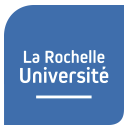Introduction
Université de La Rochelle is a public comprehensive university located in La Rochelle, France. It is famous for its teaching and research in the fields of marine research, biological sciences, environmental sciences, agriculture, law, etc.
Overview
Student size: In 2021, the school has nearly 9,000 students. The school currently has 3 teaching departments and 1 vocational and technical college.
Number of teachers: 470 academic staff and 468 administrative staff.
History
La Rochelle's higher education originated from the University Technical College established in 1968. In 1947, the Charente-Maritime Provincial Council considered opening a law school, but in the end, the University of Poitiers established a law school branch in La Rochelle. With the support of the "University 2000" plan, on May 22, 1992, the then President François Mitterrand participated in the university's groundbreaking ceremony. On January 20, 1993, The establishment of the school was officially confirmed by a decree on January 20, 1993.
Establishment time
January 20, 1993.
School strength
Teaching quality: As a comprehensive university, it provides bachelor's, master's, doctoral and other degree education at different levels, focusing on the combination of theory and practice, cultivating students' comprehensive literacy and professional ability, and providing a large number of outstanding talents for the society.
Scientific research level: The school consists of 12 laboratories and 5 research consortia, and its research focuses on various topics such as marine megafauna protection, coastal environment, political and legal research, mathematics, management, and Asian cross-culture.
Institutional nature
Public university.
Educational philosophy
Committed to the mission of public service, focusing on cultivating students' comprehensive abilities and social responsibility, emphasizing the integration ability of graduates, featuring excellent and partnership-based research teams, maintaining close ties with the business world, striving to develop interdisciplinarity and excellence, and committed to becoming a training and research institution for addressing the challenges of coastal sustainability in smart cities.
Key laboratories and disciplines
Key laboratories: The school has 12 laboratories and 5 Research associations, such as marine biology, coastal environment and other related research laboratories, whose research results have a certain influence in related fields.
Key disciplines:
Marine research: The school is located in a coastal city and has unique geographical conditions. It has outstanding research and teaching results in marine ecology, marine resource management, marine biotechnology and other aspects, and has trained a large number of professional talents in marine related fields.
Biological sciences: Covering multiple directions from basic biology to applied biotechnology, such as molecular biology, cell biology, bioengineering and other majors, it provides students with systematic biological science education and research opportunities.
Environmental sciences: Focusing on important issues such as environmental protection and sustainable development, it has carried out in-depth research and teaching work in environmental monitoring, environmental governance, and ecosystem protection, and is committed to cultivating talents with environmental awareness and professional skills.
Law: The law major has a long history, and has in-depth research and teaching in the fields of liability law, international management and Atlantic world history, and has trained many legal professionals.
Departments
The school is mainly composed of the following departments:
License Collegium: It brings together all the subject departments that teach undergraduate courses.
Smart Urban Coastal Sustainability Institute (Smuc S): includes all research and courses related to the topic of smart urban coastal sustainability.
Law, Politics and Management Faculty: includes the School of Business Administration, etc., mainly covering teaching and research in the fields of law, political science and management.
Technological Institution of the University: provides university technical bachelor's programs in business, communications, engineering and informatics.
Ranking
According to the latest academic ranking of the French Ministry of Higher Education, La Rochelle University ranks 38th among public universities.
Fees
Tuition fees: Tuition fees for French public universities are fully borne by the state. Students only need to pay a registration fee. The registration fee for undergraduate studies is generally around 170-300 euros, and the registration fee for master's and doctoral studies is about 200-400 euros.
Living expenses: The cost of living in La Rochelle varies from person to person, generally including accommodation, food, transportation, daily necessities, etc., and it costs about 800-1200 euros per month.
Campus
Campus distribution: The campus of the University of La Rochelle is located in the center of La Rochelle. It is an urban campus that is closely integrated with urban life.
Teaching facilities: The school is equipped with modern teaching buildings, libraries, laboratories and other teaching facilities, providing students with a good learning environment.
Living facilities: There are various restaurants, cafes, supermarkets and other living facilities around the campus to meet the daily needs of students. In addition, the school also provides students with a wealth of sports facilities and cultural activities to promote the all-round development of students.
-

University of Angers
-
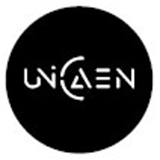
University of Caen Normandy
-

University of Bordeaux
-

Claude Bernard University Lyon 1
-
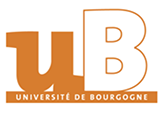
University of Burgundy
-

CY Cergy Paris University
-
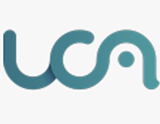
Clermont Auvergne University
-

University of Artois
-
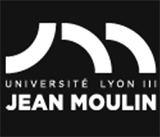
Jean Moulin University Lyon 3
-

University of Franche-Comté
-

Mesoamerican University
-

Istmo University
-

Mariano Galvez University of Guatemala
-

Regional University of Guatemala
-

Galileo University
-

Francisco Marroquín University
-

Rafael Landívar University
-

University of the Valley of Guatemala
-

University of San Carlos of Guatemala
-

Technological Institute of Tlaxcala Plateau
-

Golfo University
-

Technological University of South Sonora
-

Technological University of Huejotzingo
-

Tizimín Institute of Technology
-

Chilpancingo Institute of Technology

